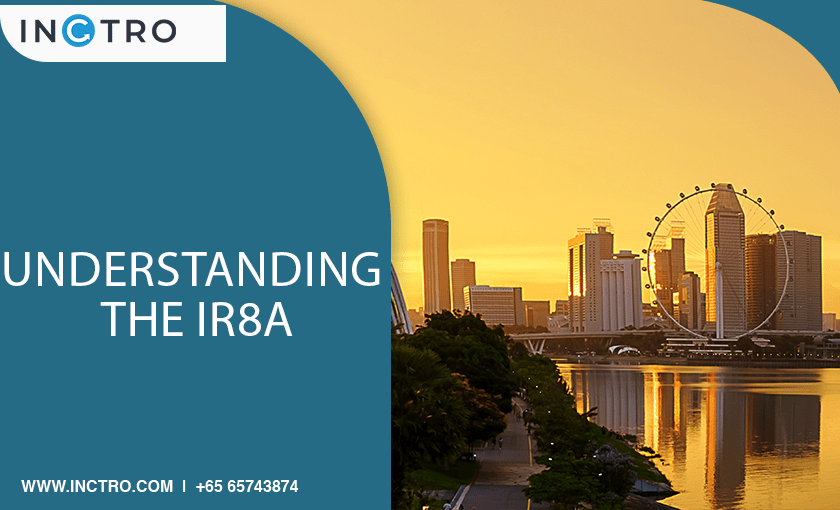- February 9, 2023
- Posted by: Vivek Sharma
- Category: Knowledge Base

If you are a resident or an employee in Singapore, you might be familiar with the IR8A form. IR8A, also known as the Employer’s Return of Remuneration Paid, is one of Singapore’s most important tax forms that employers must file annually. This form reports all the remuneration paid to employees during a financial year and the relevant tax deductions made.
Singapore’s IR8A form is crucial as it helps the Inland Revenue Authority of Singapore (IRAS) determine the proper amount of tax employees owe. In other words, it lays the foundation for calculating an individual’s taxable income.
Who needs to submit IR8A?
All employers in Singapore must file an IR8A form for each financial year, regardless of the size of their business or the number of employees. This includes local and foreign employers and individuals who work freelance or on contract.
When is IR8A due?
The IR8A form must be filed yearly, covering the previous financial year.
What information is required in IR8A?
The IR8A form requires the following information:
- Employee Information: This includes the name, NRIC number, and the amount of remuneration paid to each employee.
- Tax Deducted: Employers must report the amount of tax deducted from each employee’s salary and other taxable benefits during the financial year.
- Allowances and Reimbursements: Any allowances and reimbursements provided to employees must be reported in the IR8A form, including overseas allowances, housing allowances, and entertainment allowances.
- CPF Contributions: Employers must also report the amount of CPF contributions made for each employee, including employee and employer contributions.
- Share Options and Other Benefits: If employees have been granted share options or any other benefits, the details must be reported in the IR8A form.
Why is IR8A important?
The IR8A form is crucial for both employees and employers as it helps determine each employee’s taxable income. This form helps the IRAS determine if an individual has received any benefits in kind or any taxable allowances that were not reported in their previous tax returns.
Employers who fail to file the IR8A form or file it late may face penalties and fines. On the other hand, employees who receive benefits in kind or taxable allowances that were not reported in the IR8A form may be required to pay additional taxes.
Conclusion
In conclusion, the IR8A form is a vital part of the tax system in Singapore and must be filed accurately and on time by all employers. It provides a comprehensive overview of the remuneration paid to employees and the tax deductions made, which is essential for determining an individual’s taxable income.
